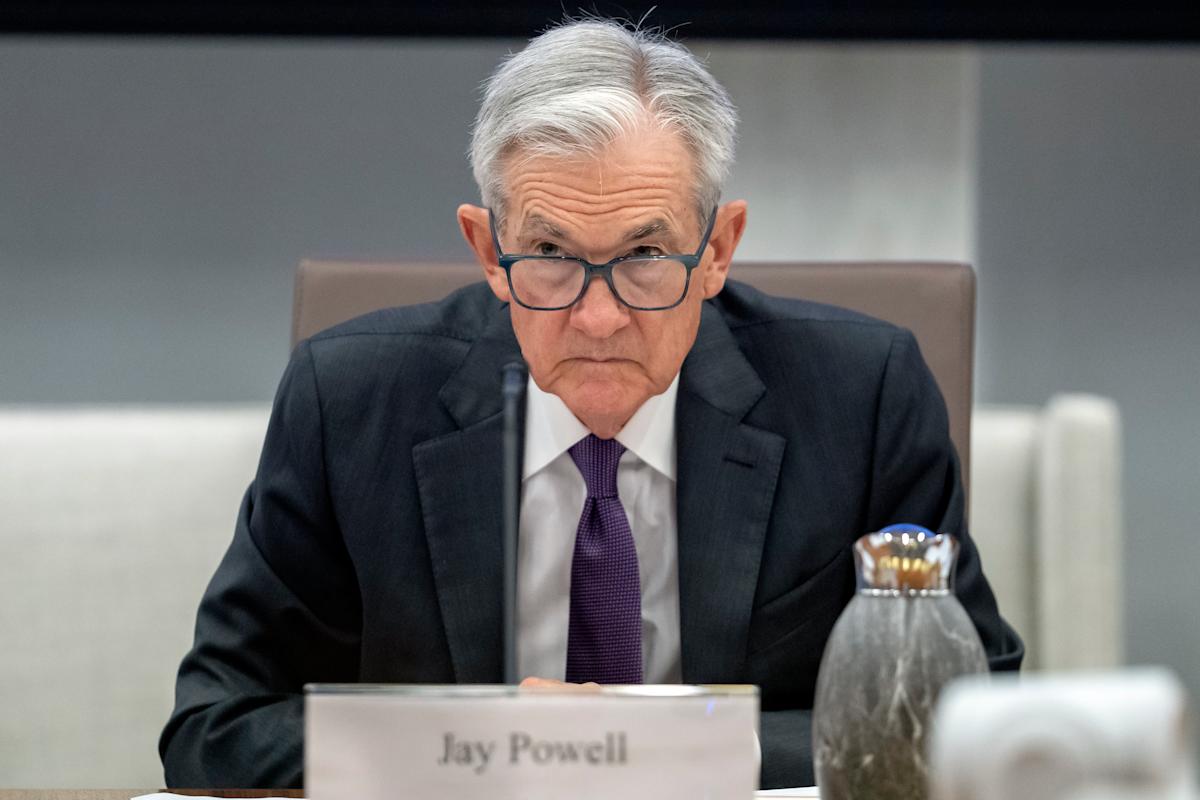
Fed gets fresh legal headache with lawsuit seeking to make FOMC rate meetings public
How did your country report this? Share your view in the comments.
Diverging Reports Breakdown
Fed gets fresh legal headache with lawsuit seeking to make FOMC rate meetings public
Money manager sues the Federal Reserve for keeping monetary policy meetings behind closed doors. Azoria Capital’s lawsuit asks the court to issue a temporary restraining order compelling the Fed’s Federal Open Market Committee (FOMC) to open its deliberations to the public. This comes as the Fed is under pressure on several fronts by President Trump, highlighted by an unusual presidential visit to the central bank for a tour of the $2.5 billion refurbishment of its National Mall buildings. Trump has repeatedly hammered Powell and the Fed for this view, arguing that rates should be three percentage points lower.
Azoria Capital’s lawsuit asks the court to issue a temporary restraining order compelling the Fed’s Federal Open Market Committee (FOMC) to open its deliberations to the public starting Tuesday and Wednesday, when central bank policymakers gather in Washington to decide on their next interest rate move.
This comes as the Fed is under pressure on several fronts by President Trump, highlighted by an unusual presidential visit to the central bank for a tour of the $2.5 billion refurbishment of its National Mall buildings. Trump and other administration officials have criticized the project for its cost overruns.
President Trump on July 23 in Washington, D.C. (Chip Somodevilla/Getty Images) · Chip Somodevilla via Getty Images
Azoria Capital, the money manager bringing the new lawsuit against Powell and other members of the FOMC, is led by CEO James Fishback, who is close to the Trump administration and served as an adviser to the Department of Government Efficiency (DOGE).
Last year, Fishback used Trump’s Mar-a-Lago Club as the setting to announce an anti-DEI exchange-traded fund called the Azoria 500 Meritocracy ETF (SPXM), which began trading this month on the New York Stock Exchange.
Azoria argues in its suit that “by operating beyond public scrutiny, the FOMC is deliberately undermining the public accountability envisioned by Congress,” and that if a firm such as Azoria does not have real-time access to FOMC deliberations, it “cannot fully consider and protect itself against Federal Reserve policy shifts that can create volatility.”
Azoria also states in its suit that it “is deeply concerned that the FOMC, under Chair Jerome Powell, is maintaining high interest rates to undermine President Donald J. Trump and his economic agenda, to the detriment of American citizens and the American economy” and that the FOMC’s current policy stance “appears politically motivated.”
Fishback made the administration aware of the suit before it was filed, according to a person familiar with the matter.
The FOMC has not changed interest rates since Trump took office, as many policymakers argue that more time is needed to assess how Trump’s trade policies will affect inflation. Trump has repeatedly hammered Powell and the Fed for this view, arguing that rates should be three percentage points lower.
Fed gets fresh legal headache with lawsuit seeking to make FOMC rate meetings public
Money manager sues the Federal Reserve for keeping monetary policy meetings behind closed doors. Azoria Capital’s lawsuit asks the court to issue a temporary restraining order compelling the Fed’s Federal Open Market Committee (FOMC) to open its deliberations to the public. This comes as the Fed is under pressure on several fronts by President Trump, highlighted by an unusual presidential visit to the central bank for a tour of the $2.5 billion refurbishment of its National Mall buildings. Trump has repeatedly hammered Powell and the Fed for this view, arguing that rates should be three percentage points lower.
Azoria Capital’s lawsuit asks the court to issue a temporary restraining order compelling the Fed’s Federal Open Market Committee (FOMC) to open its deliberations to the public starting Tuesday and Wednesday, when central bank policymakers gather in Washington to decide on their next interest rate move.
This comes as the Fed is under pressure on several fronts by President Trump, highlighted by an unusual presidential visit to the central bank for a tour of the $2.5 billion refurbishment of its National Mall buildings. Trump and other administration officials have criticized the project for its cost overruns.
President Trump on July 23 in Washington, D.C. (Chip Somodevilla/Getty Images) · Chip Somodevilla via Getty Images
Azoria Capital, the money manager bringing the new lawsuit against Powell and other members of the FOMC, is led by CEO James Fishback, who is close to the Trump administration and served as an adviser to the Department of Government Efficiency (DOGE).
Last year, Fishback used Trump’s Mar-a-Lago Club as the setting to announce an anti-DEI exchange-traded fund called the Azoria 500 Meritocracy ETF (SPXM), which began trading this month on the New York Stock Exchange.
Azoria argues in its suit that “by operating beyond public scrutiny, the FOMC is deliberately undermining the public accountability envisioned by Congress,” and that if a firm such as Azoria does not have real-time access to FOMC deliberations, it “cannot fully consider and protect itself against Federal Reserve policy shifts that can create volatility.”
Azoria also states in its suit that it “is deeply concerned that the FOMC, under Chair Jerome Powell, is maintaining high interest rates to undermine President Donald J. Trump and his economic agenda, to the detriment of American citizens and the American economy” and that the FOMC’s current policy stance “appears politically motivated.”
Fishback made the administration aware of the suit before it was filed, according to a person familiar with the matter.
The FOMC has not changed interest rates since Trump took office, as many policymakers argue that more time is needed to assess how Trump’s trade policies will affect inflation. Trump has repeatedly hammered Powell and the Fed for this view, arguing that rates should be three percentage points lower.
